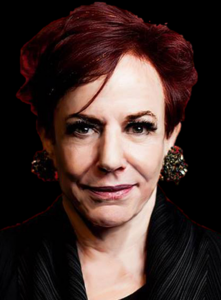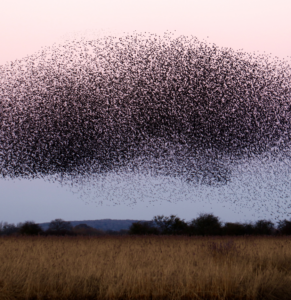History
Something sparked the consumer’s “do good” drive globally in the mid-1980s, and Faith Popcorn and her culture-curious team noticed it. Gradually at first, then more noticeably, people began to step up and try to improve the world. There were humanitarian projects like Live Aid, engineered to raise funds to help with the Ethiopian famine. Refugee crises galvanized the public, as did the Exxon Valdez oil spill. Suddenly, it wasn’t enough to care only about one’s own family, town, or district: A new movement was afoot where a global conscience soared and the Save Our Society Trend swept across the globe.
Practical Application
Faith Popcorn’s BrainReserve wove this Trend into its work on a variety of fronts. It showed Campbell’s how to embrace the “good” in its tagline and do good in society, bringing soup-mobiles to those dealing with natural disasters. It led a major personal-care player to adopt body positivity and support diversity. Faith and her team also partnered with a Fortune 100 company to futurize its environmental programs and pioneer engaging, tech-driven zero-waste initiatives.
As the 90s neared a close, the SOS signals were everywhere: Chef Alice Waters of Chez Panisse created an edible schoolyard, using an organic garden as a classroom. Working Assets phone service used major carriers (like Sprint) but applied two cents of every dollar in revenue to a chosen cause of the month. And 182 major investing institutions made socially responsible investments, amounting to $639 billion in annual assets (almost 10 times the size of the Vanguard S&P Index 500 fund at the time).
Present
Now, doing good and giving back have been elevated by purpose-driven companies like Tom’s (with its breakthrough One-for-One program), Warby Parker, P&G and many more. While these highly successful businesses have encoded the Save Our Society message into their products, the stakes are getting higher, as consumers scan to see which brands are good corporate citizens. The Internet and an array of apps enable consumers to judge a company’s Corporate Soul. To succeed in the future, a business must embrace that Values are the New Value, as Faith often says. Consider how Everlane (the totally transparent clothing company that spells out exactly what its materials and labor cost) has elevated its mission to protect the health of workers in Asia. Everlane put a portion of its sales directly towards helping workers eat more healthfully, funding clean meals and the creation of an organic farm. This is the shape of things to come – how businesses must behave like governments and NGOs. AI will allow consumers to zoom in and be matched with – and monitor—the causes closest to their hearts. They will shop with their values and refuse to spend with companies that don’t support their causes.
Future
The problems that lie ahead – the robo-replacement of jobs, the declining birth rate and aging of our population, political divisiveness, and death-spiral of our planet’s health – all beg for solutions. On this playing field, the brave who choose to jump in, declare their causes and work innovatively to improve the culture will be the only ones left standing. The companies that choose to stay on the sidelines, to “wait and see” – they won’t be here in coming decades. Those that put people, earth and ethics first will survive.
Trend Pairings
Save Our Society clusters with the Vigilante Consumer Trend, which describes how people use pressure and protest to get companies to do the right thing. If brands don’t embrace CSR independently, this consumer will forcefully demand it.
Save Our Society also merges with AtmosFear, as environmentalism becomes the pre-eminent cause that consumers cluster around. As our planet’s health fails, recognition that every business must shoulder its share will rise.





